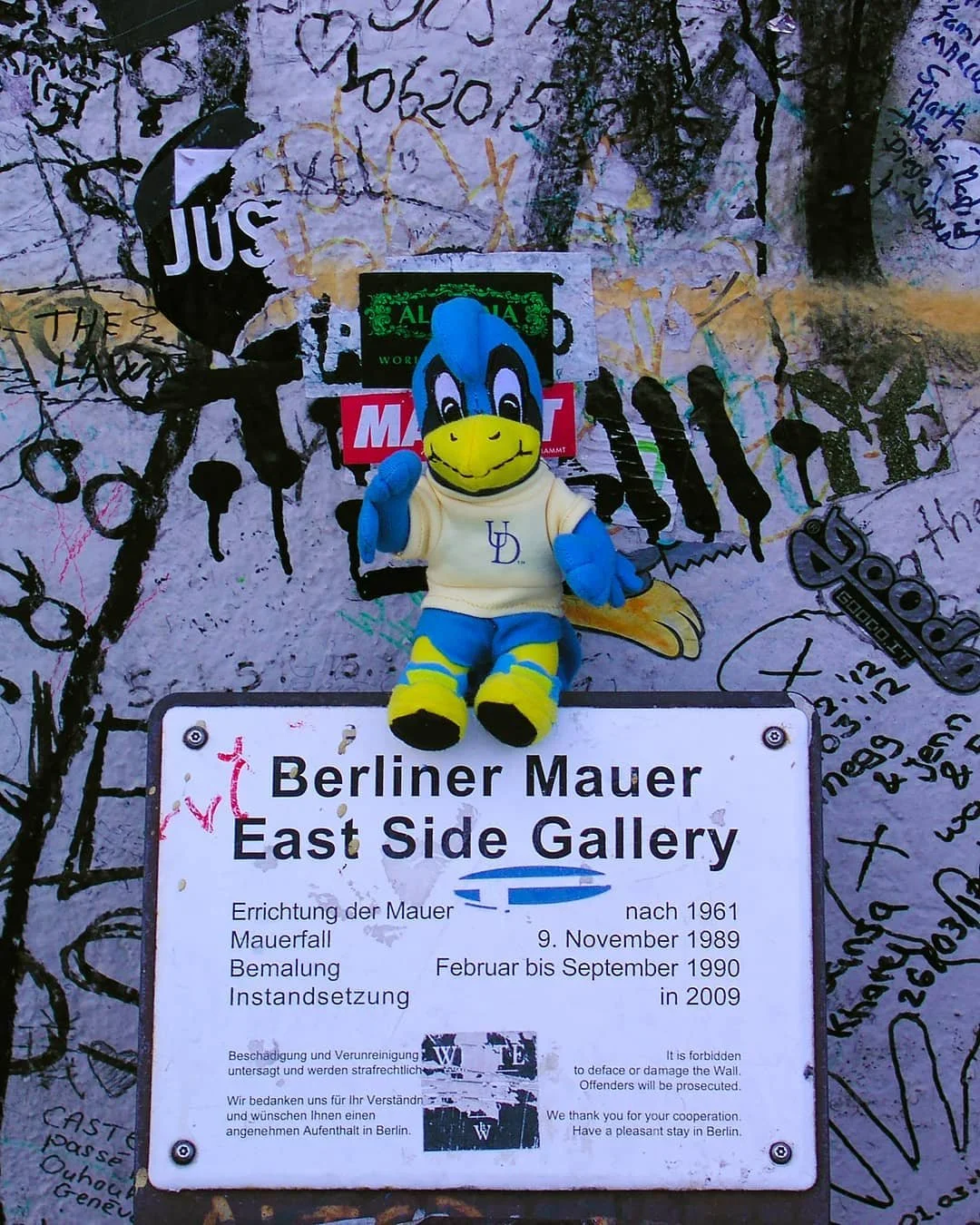As a World Scholar, I’ve had to opportunity to attend various lectures held by professionals in the communication field on how to best capture and represent new locations and cultures in the most ethical way.
Below I will present some of the concepts I’ve learned and applied throughout my study abroad experiences, and in doing so I hope to inspire you to use them on your next adventure!
Before the Shot
Ask yourself:
Why am I taking this picture?
Is it appropriate?
Does it portray the subject in an accurate way?
Do I know enough about the culture to not be insensitive?
Answering these questions will help you to determine if what you’re about to capture is something worth memorializing or just living in the moment.
What not to do.
While this may be a cute image on the surface, posing YoUDee on the Berlin Wall is insensitive. The photographer tokenized being in a foreign location without taking into account the history and context of the situation.
Posted by @UDGlobal on Instagram (06/18/2021)
Different Cultures, Different Rules
One of the most important things to keep in mind is how different cultures see photography and being portrayed in their daily life. I’m not sure if anyone else has had this experience in the US, but in many Amish communities here in the US, there are signs requesting that photos not be taken. That same expectation often exists in other cultures, regardless of whether or not a sign is posted.
One way to get someone of a different culture or background to feel more comfortable with their image being taken is by getting to know them
Taking a photo of a friend is far less scary than of a stranger
Offer to give them a copy of the photo digitally, or printed and mailed/given to them
If you don’t speak the language of the person you’d like to photograph, try using hand signals or gesturing by holding up a camera or phone.
Moroccan farmers and fast friends
On the way to Chefchaouen, we visited with a Moroccan family where we got to ask questions and learn more about their culture. Only after speaking with them, (through a translator), and befriending them did we ask for a photo together.
Beg forgiveness or permission?
Another question I regularly ask myself is “do I need to ask the subject for permission to shoot this?” The subject can be a person or people, but it can also be a building or location. Every situation has a different set of rules and norms to navigate, and knowing what to look for and how to approach new situations is important. One thing to note, as of the creation of the GDPR in the EU, it is against the law to post or share a photo of someone without their permission.
Some locations and subjects won’t care that you take a picture, but others will
In general, when visiting places of worship, somber locations, or in a possibly unsafe situation, it’s better to ask first.
When in a public space where I know I could miss out on an opportunity quickly, I generally shoot, then ask.
Offering to give the subject credit by @-ing them on social media or mentioning their name can be enough to get many people to say yes!
Shoot your shot!
In this situation, I knew I only had seconds to capture the moment before the lighting and composition changed. I opted to take the picture and then run up to couple and ask if the photo was okay to post/use. I offered to tag them, and they said yes!
Image taken by me - Fuji X-T3 w/56mm f1.2
Other Tips to Keep in Mind
Include captions to break down the reason for taking a controversial image rather than allowing your idea to get lost in interpretation
When you can, avoid taking snapshots — think about what you’re capturing and follow general composition rules to get the most out of your image
Practice! The more photos you take, the better you’ll get at telling stories and capturing compelling moments
Don’t worry about the camera you do or don’t have; your phone is more than good enough!
Both of these images were taken by me on my iPhone. You don’t need a “real” camera, I promise.
Never stop exploring!
With every new culture you explore and every new person you meet, the more comfortable you’ll become in uncertain situations.






